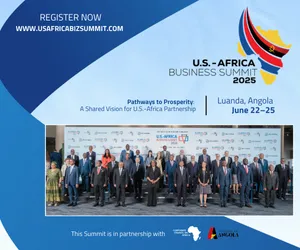Mauritian fishermen claim their livelihood is threatened by the EU fleet of fishing vessels operating in the island nation’s Exclusive Economic Zone (EEZ) of Mauritius. The government does not agree. Who is right?
The big vessels from Europe are taking away our fish that was abundant in our lagoons in the past but no longer. Today, we fish at a distance of 15 nautical miles from the coast but still there is no fish. What will happen in five years’ time to our jobs?” asks Lallmamode Mohamedally, who works at Les Salines, near Port-Louis, together with 34 other artisanal fishermen. This, situation, claim the fishermen, has been caused by EU vessels operating in the territorial waters of Mauritius.
The Mauritian government has allowed EU vessels to harvest 5,500 tons of fish a year for three years against an annual payment of some €660,000. The deal has not pleased the fishermen. “They are giving us an egg and taking away an ox,” says Mohamedally.
The chairperson of the Syndicat des Pêcheurs, Judex Rampol, is furious. “We do not understand this decision from our government. Why is it renting our 2.3m sq km of the territory to the Europeans for peanuts? The EU vessels are competing with us; our livelihood is threatened,” he told African Business.
It seems that the fishermen are not opposed to the presence of foreign fishing fleets as such but object to the methods used by EU vessels. “We don’t mind if they fish like everybody else, like the Taiwanese and the Japanese. Only long-liners please, no seiners, because these vessels catch all fishes, small and big, alike. This is a waste,” he says. Long-line fishing involves the use of a hook at the end of lines, whereas seiner fishing involves the use of a dragnet.
Ashhok Subron, member of Rezistans ek Alternativ, a socio-political group, has petitioned the government on this issue. He believes this agreement is unfavourable to Mauritius “because our government is selling our tuna at MRs4.56 ($0.14) a kilo to the Europeans while locals pay more than Rs200 ($6) a kilo of tuna of poor quality when it is available. This is not a good deal,” he says. Subron claims it does not benefit the workers in the seafood hub as well where the tuna is processed for exports to the EU. “They earn about Rs4000 monthly (about $130),” he says.
Fisheries Minister Nicolas Von Mally disagrees. He argues that Mauritius needs help from friendly countries to exploit its vast exclusive economic zone. “We have no fishing vessels. Should we depend only on locals, many fishes would have since long died of old age,” he says with some irony. Von Mally stressed that the fish landed by the EU vessels at Port-Louis is processed by the tuna canning factories of the island and about 95% of the production is sold on the European markets.
Lallmamode Mohamedally says local fishermen can provide this fish to the canneries. “We should not depend on the Europeans,” he observes. Bahim Khan Taher, manager of Taher Seafoods, believes Mauritian fishing enterprises can also exploit the fish resources in the EEZ if they had the necessary vessels and modern equipment. “We need some help from the government in terms of fiscal incentives to go out fishing there,” he says, adding that there is a big potential to develop the Mauritian seafood hub.
This fishing agreement between Mauritius and the EU is also challenged by Vassen Kauppaymoothoo, a Mauritian oceanographer and environmental engineer, who warns of overfishing and the depletion of tuna stocks in the region. He says the EU fleets have moved into the Indian Ocean because they have exhausted grounds in the Atlantic. “There are no fish out there because it has been overfished by these same vessels from Portugal, France and Spain. The only ocean where there are still some fish is the Indian Ocean. Don’t ever believe that the EU will have pity on Mauritius when there are no fish around the island. They’ll go somewhere else.”
At the EU office in Port-Louis, Alessandro Mariani, head of delegation, told African Business: “Just in Mauritius, 5,500 jobs arise from the tuna landed by the EU vessels.” Mariani does not see any competition between the EU fleet and local fishermen “because they operate very far away from each other – the EU vessels operate 15 miles from the coasts while the locals fish three miles away.” The fish species targeted are also different. He also points out that the EU provides €2m over three years be used for the benefit of local fishermen. He believes a ban on the EU vessels will have a negative impact on the livelihood of fishermen.
Want to continue reading? Subscribe today.
You've read all your free articles for this month! Subscribe now to enjoy full access to our content.
Digital Monthly
£8.00 / month
Receive full unlimited access to our articles, opinions, podcasts and more.
Digital Yearly
£70.00 / year
Our best value offer - save £26 and gain access to all of our digital content for an entire year!

 Sign in with Google
Sign in with Google 





